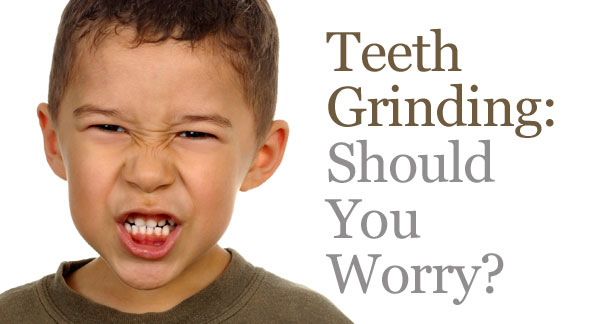
Occasionally parents will reach out to us because they’ve been alarmed by the sounds their children make while sleeping. It’s not uncommon for children to grind their teeth, especially during sleep. In fact, some estimates put that number close to 33%. Tooth grinding, or bruxism, is most common when baby teeth begin to emerge and permanent teeth come in. And while it generally goes away, there are a few considerations you should be aware of.
What causes bruxism?
We aren’t always 100% sure why children grind their teeth. Oral discomfort as teeth shift and realign may cause much of the temporary bruxism, as well as allergies and other minor illnesses. Bruxism may also be caused by minor changes in inner ear pressure, similar to what’s experienced on an airplane. Ongoing teeth grinding may be more serious and can sometimes be the results of anxiety, stress or fear. While most children stop grinding their teeth over time, it’s often important to look at your child’s overall health as well as the frequency and severity of tooth grinding to determine if intervention is necessary.
When should parents worry about bruxism?
Again, bruxism is extremely common, and most children grow out of the habit. But as with any issue you are concerned with, please always feel free to reach out to us with your questions. The following list of symptoms are signs that your child’s teeth grinding may require additional investigation:
- If your child is having trouble sleeping or is waking frequently throughout the night
- Jaw pain or soreness
- Headaches
- Tooth sensitivity or pain not associated with other dental issues
- Teeth begin showing signs of wear
- Damage to the soft tissues of the mouth
- Loud, persistent grinding that doesn’t seem to subside over time
What can parents do to help alleviate minor bruxism?
If your child occasionally grinds his or her teeth at night, and isn’t showing any serious side effects like those mentioned above, you may try the following tips to reduce or eliminate bruxism without the intervention of a dentist:
- Work to identify and decrease your child’s stress. Allow your child to talk openly about his or her feelings.
- Be sure your child is getting a proper diet
- Since dehydration may be linked to bruxism, be sure your child is drinking enough water
Of course, you should always make us aware of any issue involving your child’s teeth. We can help you monitor them for any potential issues. Never hesitate to reach out to us with any questions or concerns you might have.
